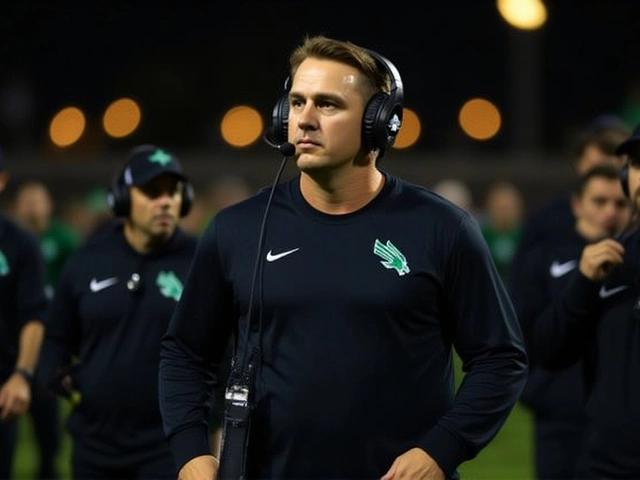Former El Salvador President Francisco Flores Pérez is facing trial for allegedly stealing $15 million in international aid meant for survivors of the 2001 earthquakes — money that was supposed to rebuild homes, schools, and hospitals, but instead vanished into accounts controlled by the right-wing Nationalist Republican Alliance (ARENA) party. On December 3, Judge Miguel García Argüello ruled there was enough evidence to send Flores to trial on charges of money laundering, embezzlement, illegal enrichment, and disobedience. The judge found Flores deliberately concealed the funds, transferred them through shell accounts, and boosted his personal wealth by over $333,104. Yet here’s the twist: despite the judge’s order to lock him up in a police jail, Flores remains under house arrest at his San Salvador home — and taxpayers are footing a $800 to $900 daily bill just to guard him.
How the Money Vanished
The $15 million came from Taiwan in early 2001, shortly after twin earthquakes killed over 1,000 people and left hundreds of thousands homeless in El Salvador. Donors intended the money for emergency housing and infrastructure. Instead, court documents show Flores directed the funds into accounts tied to ARENA, his own political party. Investigators uncovered wire transfers, fake invoices, and bank records linking the money to accounts in Panama and the U.S. The U.S. Treasury’s Financial Crimes Enforcement Network (FinCEN) had generated Reports of Suspect Operations (ROS) over a year ago — but Salvadoran prosecutors only recently requested them. Former President Mauricio Funes, who served from 2009 to 2014, publicly claimed he had a copy of the U.S. ROS report and urged authorities to act. "There are at least eight crimes here," Funes said on his radio show in 2017. "This isn’t just corruption. It’s betrayal."Why He’s Still at Home
The Ministry of Security has repeatedly asked Judge Italmir Orellana to revoke Flores’s house arrest. They argue he’s a flight risk and a symbol of impunity. But the courts have refused. Why? The legal reasoning is thin — Flores’s lawyers claim his health is fragile, citing heart issues and mobility problems. But the public sees it differently. "He’s not sick enough to stay home, but rich enough to avoid jail," said one investigative journalist in San Salvador. The daily cost of his custody — nearly $300,000 a year — has become a national punchline. Critics point out that the same funds could pay for 150 teachers or 500 school meals daily.A Pattern of Impunity
Flores isn’t alone. His case is the latest chapter in a disturbing trend: former Salvadoran presidents facing justice — but only after leaving office, and often too late. In October 2016, Antonio Saca, who succeeded Flores as president from 2004 to 2009, was arrested on corruption charges and later sentenced to over 10 years in prison for embezzling public funds. Then came Funes: in July 2023, he was sentenced to six years for tax evasion, though he fled to Nicaragua to avoid imprisonment. Meanwhile, former Defense Minister David Victoriano Munguía Payés was arrested in June 2023 in connection with the same $15 million case, suggesting a wider network of complicity.The Anti-Corruption Mirage
In 2019, President Nayib Bukele announced the creation of the International Commission Against Impunity in El Salvador (CICIES)El Salvador, a U.S.-backed initiative modeled after Guatemala’s CICIG. It was supposed to be a turning point. But by June 2021, Bukele’s government dissolved it — after the Organization of American States appointed an advisor linked to Bukele’s inner circle. The move drew sharp criticism from the U.N. and human rights groups. "CICIES was never about justice," said a former OAS official. "It was about optics." Today, El Salvador ranks 130th out of 180 countries in Transparency International’s 2024 Corruption Perceptions Index, with a score of 30 out of 100 — a slight drop from 31 the year before. The numbers don’t lie: corruption isn’t fading. It’s just changing shape.What’s Next?
The trial against Flores is expected to begin in early 2025. Prosecutors plan to subpoena U.S. banks and request extradition of two former ARENA party officials who allegedly handled the diverted funds. Meanwhile, the Ministry of Finance is auditing all foreign aid received between 1999 and 2014 — a massive undertaking that could uncover more hidden accounts. But without independent oversight, many fear the process will stall again.For now, Flores walks his garden under armed guard, while children in rural communities still live in homes built with tarps and scrap metal — the kind that were supposed to be replaced with $15 million in aid.
Frequently Asked Questions
How did Francisco Flores Pérez hide the $15 million in aid money?
Flores allegedly funneled the funds through a network of shell companies and bank accounts in Panama and the U.S., using fake invoices tied to non-existent humanitarian projects. U.S. FinCEN reports flagged suspicious transfers to accounts linked to ARENA party officials, but Salvadoran authorities delayed requesting the full documentation for over a year. The money was never used for earthquake recovery.
Why is Flores under house arrest instead of in jail?
His legal team argues he has serious heart and mobility issues, though no independent medical evaluation has been made public. Judges have repeatedly denied requests to transfer him to a prison, citing "health risks." Critics say the decision reflects systemic bias — wealthy, connected figures often avoid incarceration, while ordinary citizens face harsher penalties for lesser crimes.
What role did the ARENA party play in this scandal?
Court documents show ARENA controlled the bank accounts that received the $15 million. The party used the funds for campaign expenses, luxury vehicles, and salaries for party insiders. Two former ARENA officials are now under investigation, and prosecutors are seeking to freeze party assets linked to the transfers. ARENA has denied wrongdoing, but internal emails obtained by journalists suggest senior members knew the money’s origin.
Why has justice taken so long to catch up with former presidents in El Salvador?
Political protection, weak institutions, and delays in international cooperation have stalled cases for years. Flores’s case began in 2017 but only reached trial in 2024. Funes was charged in 2016 but sentenced in 2023. The lack of an independent judiciary and the dissolution of CICIES in 2021 removed critical oversight, allowing impunity to persist even after leaders leave office.
How does this case affect ordinary Salvadorans today?
The stolen aid money could have rebuilt over 10,000 homes, funded 200 schools, or provided clean water to 50 rural communities. Instead, many families still live in temporary shelters. The government’s $300,000 annual cost to guard Flores could have paid for 15,000 school meals. This isn’t just about corruption — it’s about lost opportunities for a generation.
Is there any hope for real change in El Salvador’s fight against corruption?
Public pressure is growing. Protests over Flores’s house arrest have spread to universities and churches. Civil society groups are demanding a new international anti-corruption body, this time with true autonomy. But without judicial independence and transparency in asset recovery, any progress will be fragile. The trial of Flores may be a test — not just of his guilt, but of whether El Salvador can finally break its cycle of impunity.




